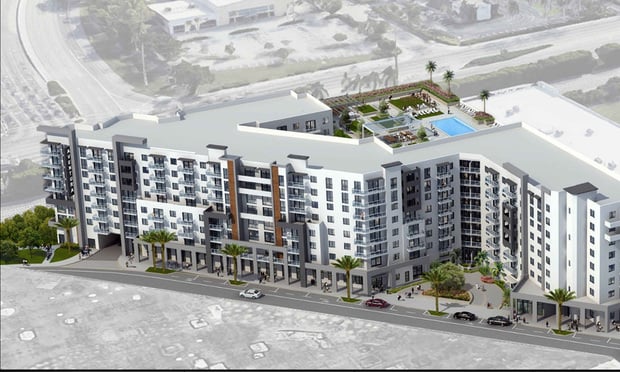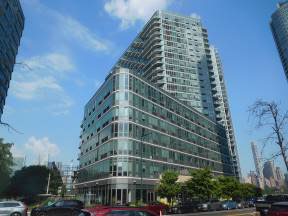Thursday's session of the three-day event held here at the Arizona Biltmore kicked off with a "View From the Top Panel," which featured six high-ranking hotel executives: Jim Anhut, chief development officer--the Americas, InterContinental Hotels Group; Joel Eisemann, EVP, owner and franchise services and lodging development for select service and extended stay for Marriott International Inc., Stephen G. Haggerty, global head of real estate and development, Hyatt Hotels Corp.; Thomas R. Magnuson, CEO/principal of Magnuson Hotels; Peter Strebel, chief revenue and development officer, Dolce Hotels & Resorts; and Jeff Wagoner, president of Wyndham Hotels and Resorts. Dennis Nessler, editor, Hotel Business, served as moderator.
Haggerty predicted that some form of consolidation will occur in the lodging industry globally due to its fragmented structure. However, he added that it is tough to do and will probably occur at a minimal level.
Anhut agreed that consolidation needs to happen, but will not be undertaken until the capital markets free up. "The equity and debt requirements are significant and the bid-ask spread is still large," he said. "But when the capital markets unlock, consolidation will happen quickly."
Yet Eisemann chimed in with a question: "If money comes back, will it go to lodging?" Wagoner further noted that investors "don't want to pounce too early."
As far as the introduction of new brands, Haggerty said such roll-outs are hard to undertake today. "Until there is a flow of capital, it's hard to get excited," he said.
The panelists also discussed the difficulty of forecasting the future in today's uncertain economic environment. Instead, they suggested focusing on day-to-day operations. "Quit wondering about the future," Magnuson declared, "and get to a low-cost operating structure."
Loyalty programs, meanwhile, can be double-edged swords. On one hand, they lure guests into a brand's hotel. Anhut said that IHG has seen an uptick in reward redemptions as customers use those redemptions instead of cash to pay for hotel nights. But that does not help owners who have guests staying in their hotels essentially for free, especially at a time when rates are already low, Strebel pointed out. "It brings customers to hotels, but it hurts rates," he said. "It's a Catch-22."
Also impacted by a lack of capital are hotel renovation projects. That come to light during a panel discussion entitled: "New Construction or Renovation to Capture Market Share." Moderated by Michael G. Desiato, vice president and group publisher, ALM-Real Estate Media Group, the panelists included Jim Fry, vice president of Holder Construction Co.; Tom Lander, VP and general manager, Mortensen Development; Aaron Plante, CEO, Apollo Hospitality Group; and Lalaine Tanaka, hospitality principal, KTGY Group Inc.
All agreed that hotel owners are undertaking renovation projects, but at a piecemeal pace. Plante stated that owners would be better off doing renovations all at once in one major project instead of taking rooms out of commission several times. "But because of cash issues," he said, "they are forced to do multiple projects."
Furthermore, owners that would once go beyond what was outlined in PIPs--property improvement plans issued by franchise companies--are now only doing the base requirements and in some cases asking for waivers to save costs, Plante noted.
All agreed that holding off on renovations or doing them in stages could backfire on the owners eventually. But as Fry pointed out, "The money's not there right now."
Money is available for certain public-private hotel projects that have long lead times and are seen by cities as economic recovery projects, Lander stated. He also suggested that now is a good time to do a new build because construction costs are down between 10% to 15% and projects can be delivered on budget.
Tanaka warned that public-private projects, while worthwhile, can be difficult due to the political hurdles. "You have to get creative about financing," she said. "But there are grants and city funding out there."
Fry said that money is available for smaller limited-service projects financed by local banks, but "not much is happening" in the four- or five-star hotel segment. "Unless you have a great location," interjected Tanaka.
The panelists further speculated about the impact a wave of distressed asset sales would have on the construction side of the industry. Lander said that investors picking up troubled assets at bargain prices would have more dollars to spend on renovations to reposition the hotel. Yet he said he hoped that lenders would dispose of the assets in an orderly fashion and not sell too cheaply, which would delay the industry from hitting the bottom and then moving forward.
Yet Fry said that a surge of distressed asset sales is what is needed. "It would kick start the process," he said. "Everybody is on the sidelines now."
The conference, which drew 1,100 attendees, concludes on Friday.
Want to continue reading?
Become a Free ALM Digital Reader.
Once you are an ALM Digital Member, you’ll receive:
- Breaking commercial real estate news and analysis, on-site and via our newsletters and custom alerts
- Educational webcasts, white papers, and ebooks from industry thought leaders
- Critical coverage of the property casualty insurance and financial advisory markets on our other ALM sites, PropertyCasualty360 and ThinkAdvisor
Already have an account? Sign In Now
*May exclude premium content© 2024 ALM Global, LLC, All Rights Reserved. Request academic re-use from www.copyright.com. All other uses, submit a request to [email protected]. For more information visit Asset & Logo Licensing.








